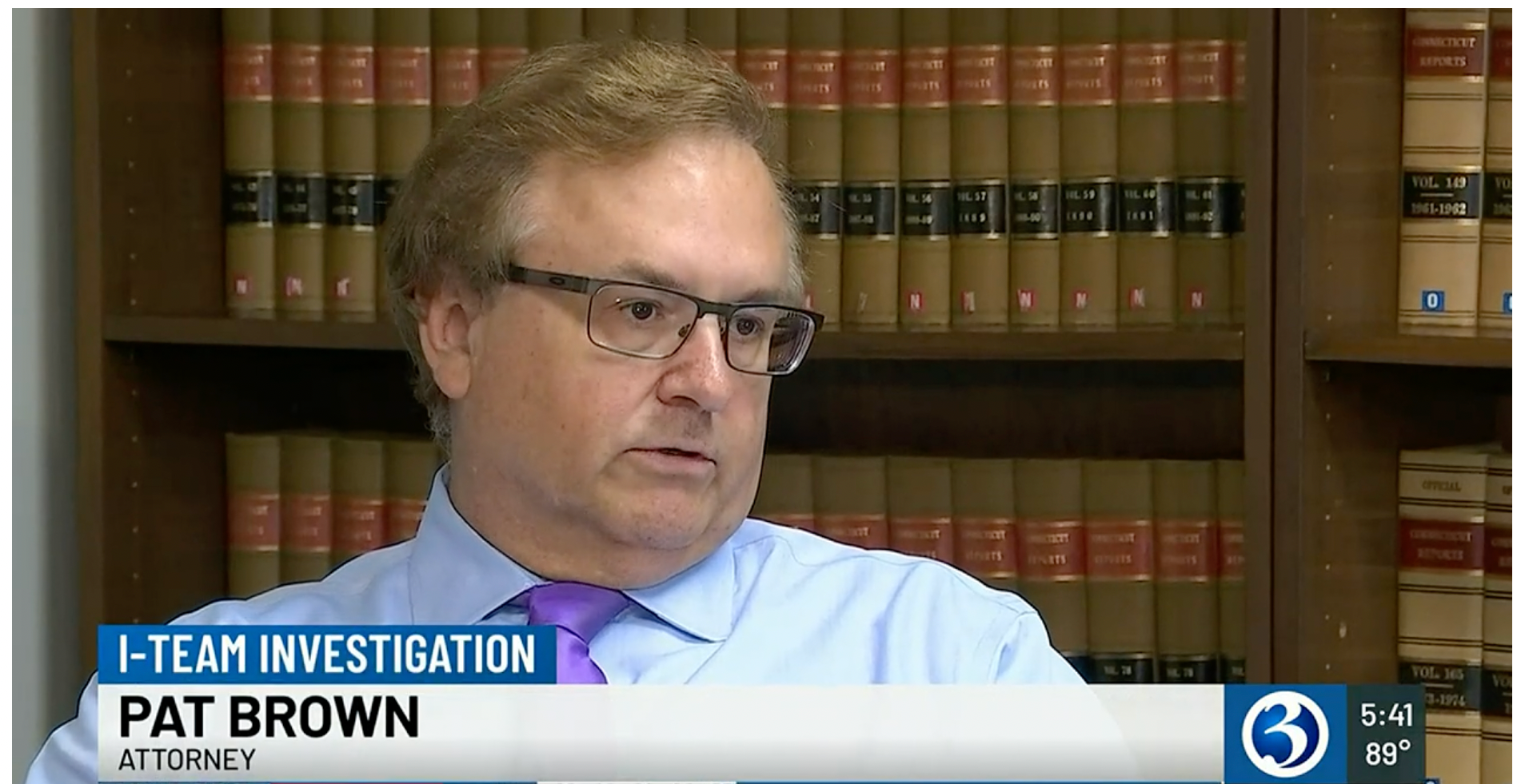What is the purpose of the pre-sentence investigation report (PSIR) in criminal cases?
In most criminal cases, guilty pleas are rapid and rote, and do not provide much information to the judge about the criminal defendant, his merits or his shortcomings. Perhaps because of this, most jurisdictions authorize an adjournment between plea or trial and sentencing for court officers (usually representatives of the probation department) to conduct a presentence investigation of the defendant and report to the judge and the parties. Judges use the presentence investigation report (“PSIR”) to arrive at an appropriate sentence, and the correctional authorities rely upon it to determine the defendant’s security classification and institutional placement. If you or a loved one is facing sentencing on criminal charges, here is some important information you need to know about this critical stage of the sentencing process:
What the report covers
The preparation of the PSIR does not involve much investigation, other than interviewing the prosecutor and the defendant and gathering records. Presentence investigators usually do not canvass the neighborhood to ascertain the defendant’s reputation and good or bad deeds. The PSIR will cover the following areas:
- The underlying facts of the offense. The investigator usually relies upon the prosecutor or case agent for this, but might ask for the defendant’s version.
- The defendant’s health and medical and psychiatric background. The investigator will have the defendant sign releases for records, but will not know of special needs unless the defendant’s criminal trial lawyer tells the investigator. Among the topics covered here will be illegal drug use.
- Family background. The investigator will start with the defendant’s description of his family background, but may contact a sibling or parent to confirm the information.
- Educational and employment history. Be accurate. The investigator will seek corroboration.
- Assets, income and expenses. This becomes important where a fine or forfeiture is likely, or where the crime calls for restitution.
- Criminal record.
- Educational, treatment and rehabilitative programs available for the defendant. PSIRs often fall short in this respect, but seek recommendations that might help keep the defendant from becoming a repeat offender (e.g., job training, drug and alcohol treatment, anger management classes and counseling for gamblers).
- Sentencing guideline calculations. The PSIR usually produces an initial calculation that will hold unless the parties object.
- Sentencing recommendation. The probation officer often will recommend a specific sentence to the judge. Unlike the rest of the report, this recommendation often remains secret from the criminal defense team and the prosecution.
Waiving the PSIR
In most misdemeanor cases, the parties will have an agreement or at least a relatively certain expectation regarding the sentence, and there is only one institution in which to serve custodial sentences (the county jail) so a presentence report serves little purpose and may not be required. With a conviction on a felony criminal charge, however, a presentence investigation is usually mandatory, but the applicable rule or statute might leave some room for the parties and trial judge to waive it.
The defendant should waive (i.e., bypass) a presentence investigation and report when the judge or prosecutor has guaranteed a favorable sentence. When the judge can sentence-bargain, a PSIR may provide the judge an out from a favorable promise. When the judge does not participate in bargaining and the prosecutor can make only non-binding recommendations, the trial judge likely will follow that recommendation, reasoning that the prosecutor and the criminal defense lawyer know best the defendant’s conduct and background, and the proper dose of punishment. Remember, at the time of plea, the judge has heard nothing more than the brief plea discussion, which merely sketches the criminal offense conduct and says nearly nothing about the defendant’s background. The presentence investigator might excavate sordid details of the crime and the defendant’s background, which might justify a more severe sentence.
The pre-sentence interview
The weight of legal authority holds that a presentence interview is not a critical stage of the proceedings at which the criminal defendant has a right to counsel. These rulings are premised on the belief that the investigator acts as an arm of the court, not an adversary. However, many jurisdictions permit an attorney to attend, either by rule or custom. In practice, the defendant’s attorney should attend the interview unless his or her presence would so offend the investigator as to result in a hostile interview. If the investigator resists, the defense attorney can explain that he is there principally to facilitate the interview and to avoid misunderstandings. For the most part, in fact, that should be the defense attorney’s role – along with taking extensive notes of the defendant’s remarks.
Whether or not defense counsel is present, the defendant should follow these general guidelines for the interview:
- Criminal history questions
The defendant should not answer questions about his criminal history. Defendants often deny guilt of crimes to which they pleaded guilty, and sometimes in good faith assert that a case that resulted in a conviction and time served was “dismissed.” These inaccuracies can lead the presentence investigator to characterize the defendant as dishonest. Further, the defendant may inform the investigator about crimes that never would have been discovered (e.g., crimes in other states or convictions in local courts or before the minor judiciary). When asked, the defendant must answer questions about his criminal history honestly. Accordingly, the best strategy is an across-the-board refusal to address the topic. - Crime of conviction questions
Questions about the criminal offense charged may similarly entangle the defendant. The defendant might add otherwise unknown damning facts or dishonestly minimize his guilt. If the investigator demands a statement, on the threat that silence will lose the defendant credit for accepting responsibility for his crime, the defense attorney should provide a written statement authored in consultation with the defendant. - Drug use questions
Questions about drug use should be handled on a case-by-case basis, depending on the defendant, the nature of the criminal charges, and the judge. Some judges consider drug use to be a mitigating factor, and reference in the PSIR to the defendant’s drug use may facilitate entry into treatment programs, which could reduce the sentence. Drug dealers who sell to support their habit seem less culpable than those who sell out of greed. However, drug use is criminal conduct, and it may disturb some judges, especially if the defendant was on probation or parole while using drugs. Many probation officers demand that the defendant give a urine sample at the interview. The defendant should be warned to clean up or to confess to his drug use so he is not caught in a lie. If it is a foregone conclusion that the sample will be positive, the criminal defense lawyer should notify the probation officer in advance.
Providing information to the investigator
The defendant’s criminal trial lawyer should submit information about the defendant, the defendant’s version of the criminal offense, and any mitigating factors as soon as possible to increase the likelihood that the probation officer will include the information in the report. The officer’s endorsement of the information cloaks it with a credibility that defense counsel’s post-report sentencing memorandum will not have. Information submitted to the investigator should be specific and be accompanied by supporting documentation to which the officer can refer.
If there is no agreement on the sentencing guidelines range, the probation officer should be given factual statements, references to the trial record or law enforcement reports, and the law that supports a favorable guideline calculation. The defense attorney’s goal should be to make the probation officer’s job easier and his or her calculations defensible. The PSIR’s initial calculation carries inertial heft, so that a favorable one imposes a substantial burden on the prosecution.
With respect to the defendant’s personal background, one family member should be designated as the ambassador to the presentence investigator. This should be someone who is responsible and sympathetic to the defendant, who can assemble pertinent information, share it with the investigator and support it with corroborating details and documents.
Challenging the PSIR
It is important to challenge inaccuracies in the PSIR and to ask the judge to order inaccurate allegations be redacted from the PSIR because:
- The trial judge will rely upon unchallenged factual assertions in the PSIR.
- Prison officials rely heavily on the PSPIR to arrive at a security classification. Inaccuracies about the defendant’s drug use, flight risk or history of violence may result in placement in a higher security prison or in more restrictive conditions of confinement, even if the inaccuracies do not affect the sentence.
The defendant’s criminal trial lawyer should obtain the report far enough in advance of sentencing to review it with the defendant, investigate its inaccuracies, research any legal issues on merger, concurrency of sentences and guidelines calculations, and file written objections. On many issues, such as the facts underlying prior convictions, family history, and drug use, the defendant is an essential starting point for any challenges.
A criminal defendant has a right to receive the PSIR in sufficient time to review and challenge it. This right may be established either by rule (e.g., the Federal Rules of Evidence) or by constitutional due process. If the materials are received late, the criminal defense lawyer should request a continuance and justify the request with an explanation of what investigation and research needs to be done. The court cannot rely upon unsupported, conclusory assertions from the prosecution which work their way into the report. For example; in a case where there was no evidence at trial about the defendant’s leadership role in the criminal offense, the probation officer and court could not rely on prosecutions’ bald allegation that defendant deserved an upward adjustment for his leadership role.
Defense counsel should object, in writing and with specificity, well before sentencing. The written objections should refer to trial evidence or witness statements that support the defendant’s position, or give specific reasons why the information underlying the report is unreliable. Defense counsel should object even if an inaccuracy does not affect the defendant’s sentencing range because it might negatively impact the defendant’s security classification. For example, if the presentence report indicates that a prior conviction for simple assault rested upon sexually abusive conduct, the defendant will receive a “public safety factor,” which disqualifies him from minimum security prison, even if he was never convicted for the sexually abusive conduct.
The post Pre-sentence Investigation Report and Interview appeared first on Law Offices of Pat Brown.






Contact Us Today
For more information, call us at (860) 321-7722 or fill out the form below.
Contact Us
We will get back to you as soon as possible.
Please try again later.







